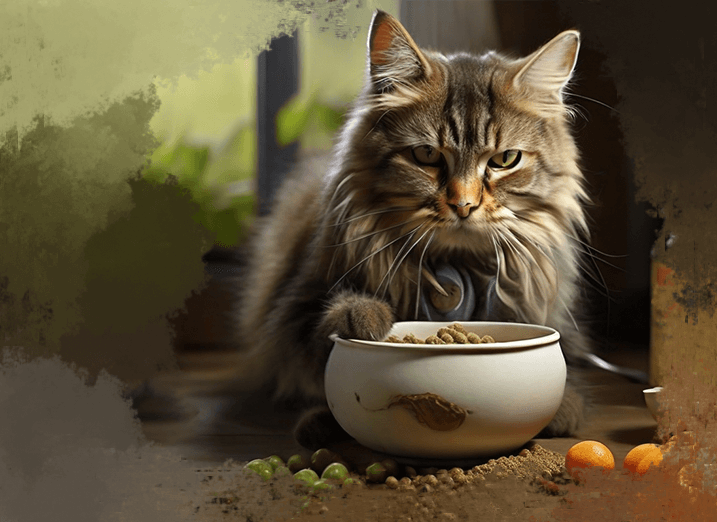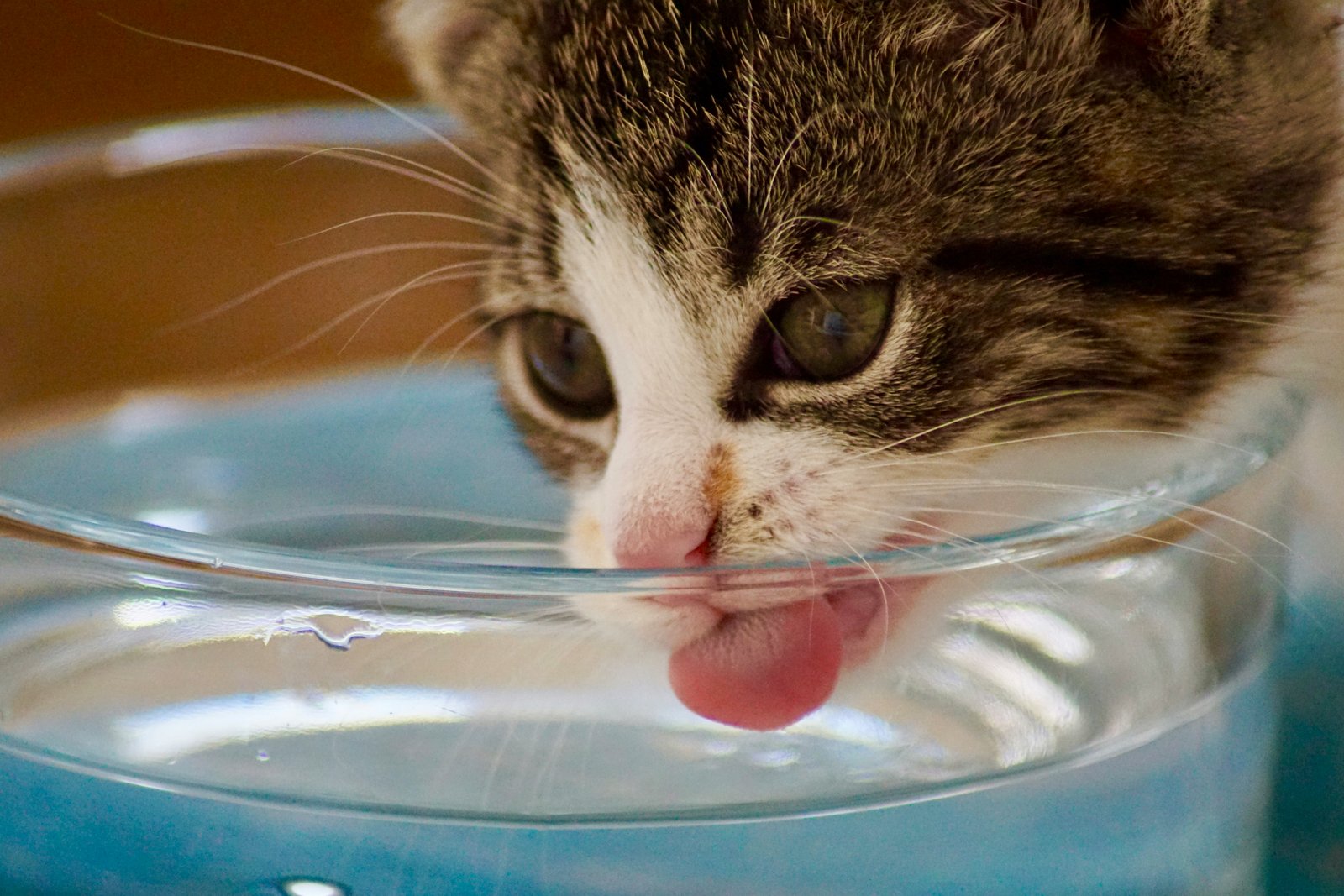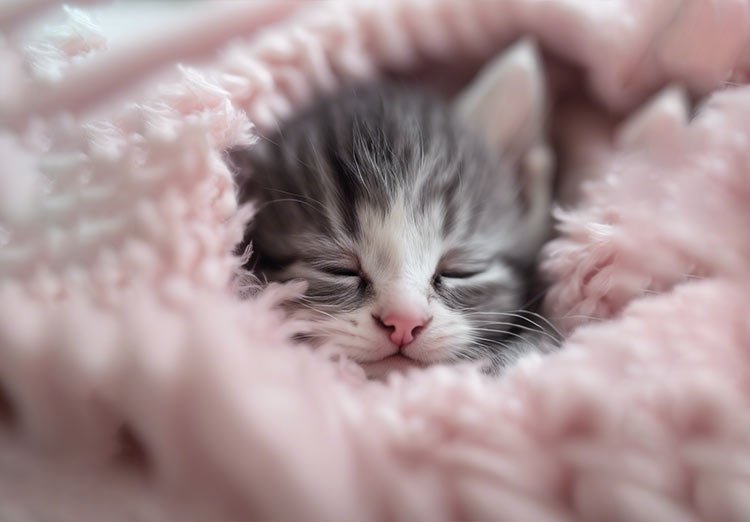When it comes to our feline companions, providing them with a healthy and balanced diet is crucial for their overall well-being. While we often focus on the nutrients that are beneficial for cats, it’s equally important to be aware of the nutrients that should be avoided. In this blog post, we will explore the nutrients that can be harmful to our feline friends and discuss why they should be eliminated from their diet. By understanding what to avoid, we can ensure that our beloved cats receive the best possible nutrition and live long, happy lives.
1. The dangers of certain nutrients for cats
As pet owners, it is essential to understand the importance of providing a healthy and balanced diet for our feline companions. While there are several nutrients that are crucial for their overall well-being, it is equally important to be aware of the nutrients that can be harmful to their health.
One of the most dangerous nutrients for cats is onions and garlic. These contain compounds that can cause damage to a cat’s red blood cells, leading to a condition known as Heinz body anemia. Even small amounts of onion or garlic can be toxic to cats, so it is crucial to avoid feeding them any foods that contain these ingredients.
Another nutrient to avoid is chocolate. Chocolate contains theobromine, which is toxic to cats. It can cause symptoms such as vomiting, diarrhea, increased heart rate, tremors, and even seizures. Dark chocolate and baking chocolate are particularly dangerous due to their higher theobromine content. It is best to keep all forms of chocolate out of reach of cats to prevent accidental ingestion.
Additionally, certain artificial sweeteners, such as xylitol, can be extremely harmful to cats. Xylitol can cause insulin release, leading to dangerously low blood sugar levels. Symptoms of xylitol poisoning in cats may include loss of coordination, seizures, and liver failure. It is crucial to read ingredient labels carefully and avoid any products that contain xylitol when feeding your feline friend.
Lastly, it is important to be cautious when it comes to feeding cats foods that are high in fat. While some fat is necessary for a cat’s diet, excessive amounts can lead to obesity and other health issues such as pancreatitis. Foods such as fatty meats, fried foods, and certain dairy products should be avoided or given in moderation.
By being aware of the dangers of certain nutrients for cats, we can take the necessary precautions to ensure that our feline friends are receiving a safe and healthy diet. It is always recommended to consult with a veterinarian for specific dietary guidelines and to provide the best possible care for our beloved feline companions.
2. Foods to avoid feeding your cat
While it’s important to know what nutrients are essential for your cat’s diet, it’s equally important to be aware of the nutrients and foods to avoid feeding them. Certain foods can be toxic to cats and may have detrimental effects on their health. One of the most common foods to avoid is chocolate. Chocolate contains theobromine, which is toxic to cats and can cause symptoms such as vomiting, diarrhea, rapid breathing, and even seizures. Another food to steer clear of is onions and garlic. Both of these contain compounds that can cause damage to a cat’s red blood cells, leading to anemia. Grapes and raisins are also a big no-no for cats, as they can cause kidney failure. Other foods to avoid include alcohol, caffeine, milk, and any food that contains artificial sweeteners like xylitol. When it comes to your cat’s diet, it’s always better to be safe than sorry. Stick to a nutritionally balanced cat food that is specifically formulated for feline needs and avoid giving them any human food without consulting with a veterinarian first. By being mindful of the foods to avoid, you can help ensure that your cat’s diet is as healthy and safe as possible.
3. Understanding the impact of these nutrients on feline health
Understanding the impact of certain nutrients on feline health is crucial when it comes to providing a healthy diet for your beloved cat. While there are many essential nutrients that cats require for optimal health, there are also some nutrients that should be avoided or limited in their diet.
Firstly, it is important to be aware of the negative effects of excessive carbohydrates in a feline’s diet. Cats are obligate carnivores, meaning their bodies are designed to primarily digest and utilize meat-based proteins. High carbohydrate diets can lead to weight gain, diabetes, and other metabolic disorders in cats. Therefore, it is recommended to choose cat foods that are low in carbohydrates or specifically formulated for a cat’s needs.
Another nutrient to be cautious of is excessive fat. While fat is an important energy source for cats, too much fat can lead to obesity and various health issues. It is important to find a balance and choose cat foods that provide adequate, but not excessive, amounts of healthy fats.
Additionally, it is crucial to avoid feeding cats with foods that contain toxic substances such as onions, garlic, and certain artificial sweeteners like xylitol. These ingredients can be extremely harmful to feline health and should be strictly avoided.
Furthermore, it is best to limit the intake of salt in a cat’s diet. Excess sodium can lead to dehydration and kidney problems in cats. It is recommended to choose cat foods that have moderate sodium levels or consult with a veterinarian for appropriate dietary guidelines.
By understanding the impact of these nutrients on feline health, you can make informed choices when it comes to feeding your cat. Always consult with a veterinarian for personalized dietary recommendations and ensure that your feline friend receives a balanced and nutritious diet to support their overall well-being.
4. Tips for maintaining a healthy feline diet
Maintaining a healthy diet is crucial for the overall well-being and longevity of our feline friends. Just as we carefully choose our own foods, it is essential to pay attention to what our cats eat. To ensure a healthy feline diet, here are some tips to keep in mind.
Firstly, it is important to avoid feeding your cat foods that are high in carbohydrates. While carbohydrates can provide energy, cats are obligate carnivores, and their bodies are designed to primarily digest and thrive on animal-based proteins. A diet high in carbohydrates can lead to weight gain, diabetes, and other health issues in cats.
Secondly, it is best to avoid feeding your cat foods that contain artificial additives and preservatives. These additives can be harmful to their health and may cause allergies or digestive problems. Instead, opt for natural and minimally processed cat foods that are free from artificial ingredients.
Furthermore, it is crucial to avoid feeding your cat foods that contain excessive amounts of salt. Cats have a low tolerance for salt, and consuming too much can lead to dehydration and kidney problems. Always check the labels of cat foods for sodium content and choose those that are low in salt.
Lastly, it is important to avoid feeding your cat foods that contain toxic substances such as onions, garlic, grapes, raisins, chocolate, and caffeine. These substances can be highly toxic to cats and can cause severe health issues or even be fatal. It is essential to familiarize yourself with the list of foods that are toxic to cats and ensure they are kept out of their reach.
By following these tips and being mindful of the nutrients to avoid in your cat’s diet, you can help maintain their overall health and well-being. Consult with your veterinarian to determine the best diet plan for your specific feline companion, as their nutritional needs may vary based on age, weight, and any underlying health conditions.




